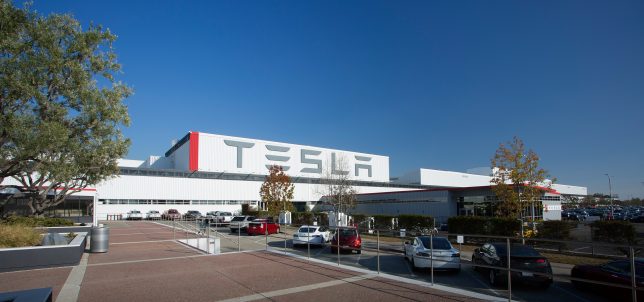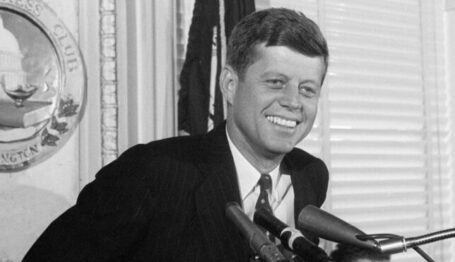Labor Watch
UAW Sets its Sights on Tesla
The United Auto Workers attempts to unionize California’s last car manufacturer
 Image via Tesla, goo.gl/M6NU5h
Image via Tesla, goo.gl/M6NU5h

Business isn’t good for the United Auto Workers (UAW).
The automobile factory workers’ union failed to unionize Volkswagen’s plant in Chattanooga, Tennessee in 2014, and the effort to unionize Nissan factory workers in Canton, Mississippi ended when workers voted nearly 2-1 against UAW.
Having failed to gain a foothold among factoryworkers in the American South and border states, the UAW is taking the fight to more liberal territory: California, and Elon Musk’s new factory for his burgeoning electric car company, Tesla. The Washington Free Beacon reports that the California Labor Federation (CFL), an AFL-CIO affiliate, is lobbying top California Democrats to support a law which would tie a company’s subsidies to its labor practices—a clear gambit to organize Tesla, which relies on subsidies from the state.
Car buyers in California receive a $2,500 tax write-off for purchasing an electric vehicle. The program is capped at individuals who earn $150,000 and families that earn $300,000, but it is still the third highest rebate program in the nation.
If Tesla were a traditional auto maker, the state government would almost certainly side with the unions. But being a “green” auto maker has its benefits; and Tesla is likely to receive a warmer reception in liberal Sacramento than would a traditional auto maker.
Ironically, the Tesla factory that UAW is targeting in Fremont is the same factory that a General Motors-Toyota joint venture abandoned in 2010, when it relocated to Texas. As CRC’s Dr. Steven J. Allen noted in a recent op-ed for the Washington Examiner, this was the only time that Toyota has ever had to close a factory in 73 years – in the country. Even California’s famously liberal Senator Dianne Feinstein has blamed the departure of Toyota on the state’s labor climate.
The California Energy Commission paid Tesla $10 million to upgrade its Fremont factory. But shortly thereafter, Musk built his electric car battery factory in Nevada after that state offered him more generous tax breaks than California. Considering the state’s investment in Tesla, it remains to be seen if California will rule on behalf of UAW and push unionization on the company. Governor Jerry Brown, who supports subsidies to combat climate change, has already come out in support of the relevant pro-union state Assembly and Senate bills.
Pro-union Tesla workers have filed 11 complaints against the company since 2011. Six of those have been dismissed, and the National Labor Relations Board is currently investigating five accusations that the company has threatened employees who supported unionization over safety concerns. Tesla released the following statement after news of the investigation broke:
Faced with declining membership, an overwhelming loss at a Nissan plant earlier this month, corruption charges that were recently leveled against union leaders who misused UAW funds, and failure to gain traction with our employees, it’s no surprise the union is feeling pressured to continue its publicity campaign against Tesla.
California may be more liberal than Tennessee and Mississippi, but as I have recently showed, a significant rift is growing between environmental-friendly tech elites based in California and traditional liberals elsewhere concerning economic policy. These Silicon Valley liberals tend to oppose unions and government regulation of business—both of which have typically remained non-negotiable hallmarks of the mainstream American Left. Musk even once described himself as “somewhere in the middle, socially liberal and fiscally conservative.” Vincent Vernuccio, a Department of Labor official under President George W. Bush, addressed this disparity in a recent op-ed in the entitled, “Organized labor is stuck in the 20th century:”
In recent years, some unions have pressured 21st-century workplaces built on efficiency and competitiveness with 20th-century coercion tactics aimed at self-preservation.
UAW hopes to corral enough pro-Big Labor liberals in the California legislature to outvote the pro-environmentalist liberals. If they succeed, it may drive California’s last auto manufacturer the way of General Motors and Toyota.



